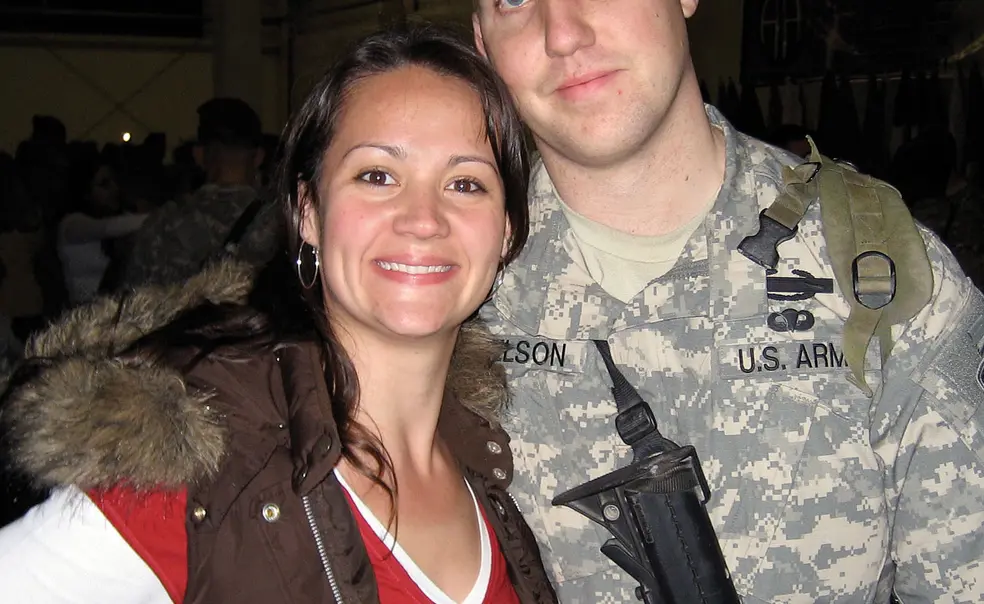Alumni Profile: Lauren (Holuba) Nelson '04, serving soldiers and their families
Lauren (Holuba) Nelson '04 never imagined that she would become a military spouse. Although she grew up near West Point, she never had been there and knew almost nothing about the military. But after marrying West Point graduate Tom Nelson in July 2005 and saying goodbye to him two weeks later, when he left for a four-month deployment to Afghanistan, she embraced her new life at Fort Bragg, N.C. She joined the company's Family Readiness Group (FRG), but found some truth to what she says is the FRG stereotype -- a group of women who sit around and gossip about wives who are not at the meetings. "I saw that happening," says Nelson, who decided to step up as leader of the FRG serving her husband's infantry unit, which is all male.
Since taking over as FRG leader three years ago -- her term ended in April -- she attracted a steady volunteer base of women and increased the number of activities organized and the amount of money raised. She restored her FRG to its purpose of helping soldiers and their families, especially during increasingly long deployments. For her efforts in reinvigorating the group and for having "contributed significantly to the promotion of the Infantry and the families of Infantrymen," in May she was awarded the Shield of Sparta: Heroine of the Infantry, the highest honor given to a military spouse by the National Infantry Association.
As FRG leader, Nelson's main role was to act as communications liaison between the Army and the company's families. She disseminated news via e-mail or phone calls to the next of kin and was the go-to person for family members with concerns about their soldiers abroad. She came up with ways to keep up soldiers' spirits during their long deployments by designing T-shirts for them for Veterans Day and making sure every man in the unit received monthly care packages, be they home-baked cookies or water balloons and launchers. Nelson also tended to the wives' morale back home, setting up day care so that mothers could go to social events and organizing classes on reading an Army payment statement and balancing a checkbook. Nelson, who at age 26 is an elder among the FRG wives, saw herself as a "guide" to the young wives, some of whom had not finished high school and many of whom have children.
By far the hardest part of her job, she says, was supporting the families of two men who were killed in action during her tenure. When Nelson arrived at their houses right after the families had been notified, she felt unprepared to comfort them. "That is a very hard, stressful job," she says. Nelson kept in touch with the families after the funerals, calling regularly, providing meals, and helping connect them with resources available to military families.
Under that dark cloud, she says, it was harder to be happy when her husband came home in February. Having lived through her husband's two long deployments, Nelson feels entrenched in military life and continues to serve soldiers in the 82nd Airborne Division through a Wounded Warrior Committee she helped found to comfort and aid men injured in action. Still, she describes the shift from civilian life, one that included four years at Princeton, as "culture shock."












No responses yet